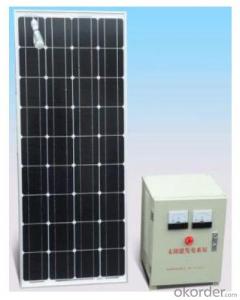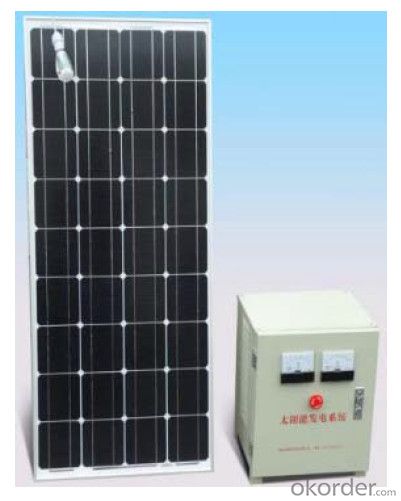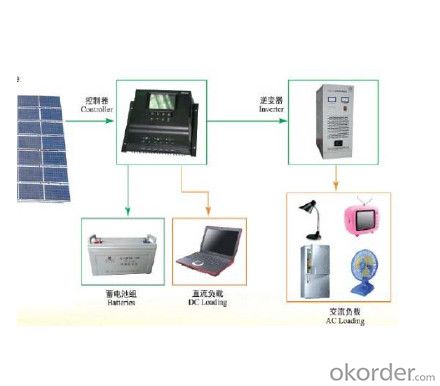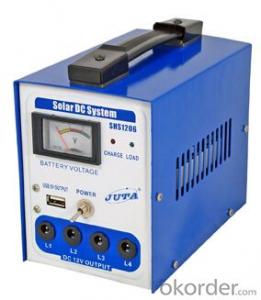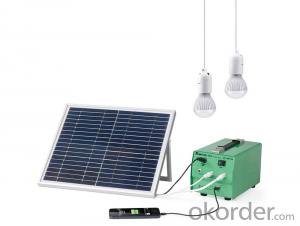Zhenfa-80SK Solar Energy Systems Dallas County Kit
- Loading Port:
- China Main Port
- Payment Terms:
- TT OR LC
- Min Order Qty:
- -
- Supply Capability:
- -
OKorder Service Pledge
Quality Product, Order Online Tracking, Timely Delivery
OKorder Financial Service
Credit Rating, Credit Services, Credit Purchasing
You Might Also Like
In certain emerging markets, Zhenfa new energy offers home owners complete residential solar system solutions to meet their green energy needs. Zhenfa's residential solar power systems are designed to meet different building applications in system sizes of 1.68kW and 3.9kW. Zhenfa also provides customized solar system solutions for special solar power systemapplications.
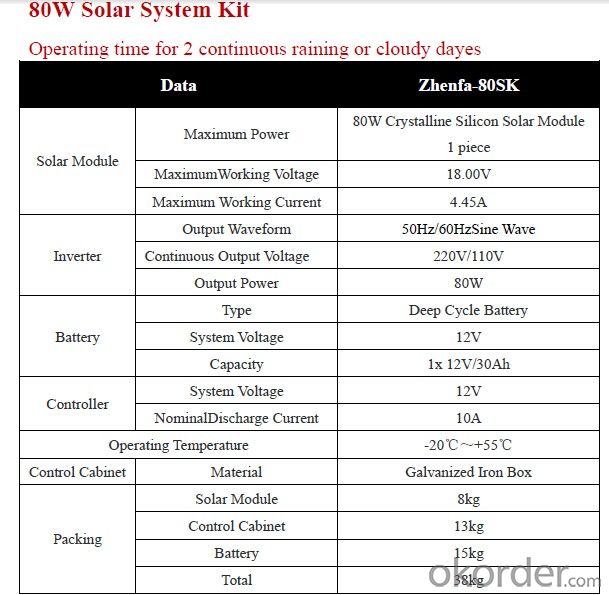

- Q: How do solar energy systems affect job growth in the renewable energy sector?
- Solar energy systems have a significant positive impact on job growth in the renewable energy sector. These systems create numerous employment opportunities from manufacturing and installation to maintenance and operations. As the demand for solar energy continues to rise, more jobs are being created, providing a boost to the overall job market and contributing to the growth of the renewable energy industry.
- Q: What are the devices needed for PV systems?
- Battery pack. The utility model is used for storing the electric energy generated by the solar array when illuminated by the light and can supply power to the load at any time. In the grid connected solar power generation system, the battery can not be added
- Q: Can solar energy systems be used in areas with high levels of wildlife activity?
- Yes, solar energy systems can be used in areas with high levels of wildlife activity. While it is true that wildlife can pose some challenges for solar energy systems, there are several ways to mitigate these issues. One of the primary concerns is the risk of damage to the solar panels by large animals or birds. However, there are various protective measures that can be taken to prevent this. For instance, installing fencing or barriers around the solar panels can help keep wildlife away. Additionally, using anti-reflective coatings on the panels can reduce the likelihood of bird collisions. Another concern is the impact of solar energy systems on wildlife habitats. It is crucial to choose the location of the solar panels carefully, considering the existing wildlife activity in the area. By conducting thorough environmental impact assessments and engaging with local wildlife experts, it is possible to minimize any potential negative effects on wildlife habitats. Moreover, solar energy systems can actually benefit wildlife in some cases. For example, solar farms can provide additional shelter and shade for some species, and the open spaces underneath the panels can create new habitats for ground-dwelling animals. Overall, while there may be some challenges, with proper planning and mitigation strategies, solar energy systems can be successfully utilized in areas with high levels of wildlife activity.
- Q: Can solar energy systems be used in areas with high levels of bird or wildlife activity?
- Yes, solar energy systems can be used in areas with high levels of bird or wildlife activity. Precautionary measures can be taken to minimize any potential negative impacts on wildlife, such as using bird-friendly designs, installing bird deterrents, and carefully selecting installation sites. Additionally, solar panels can provide shade and shelter, which can even attract certain bird species. Overall, with proper planning and consideration, solar energy systems can coexist with high levels of bird or wildlife activity.
- Q: How do solar energy systems handle excess energy production?
- Solar energy systems handle excess energy production through a process called net metering. When the solar panels produce more electricity than needed, the excess energy is fed back into the grid, and the solar system owner receives credits for the surplus electricity. These credits can then be used to offset the electricity consumed from the grid during periods of low solar energy production, such as at night or during cloudy days.
- Q: How do solar energy systems affect roofing material warranties?
- Solar energy systems can potentially affect roofing material warranties, as the installation of solar panels may require drilling or penetrating the roof. This could void or limit the warranty on the roofing material. It is recommended to consult with the roofing manufacturer or installer to understand how the warranty may be affected and if any additional measures can be taken to preserve it.
- Q: How is solar energy stored for later use?
- Solar energy can be stored for later use through various methods. One commonly used method is through the use of solar batteries or energy storage systems. These batteries are charged during the day when there is excess solar energy being generated. The stored energy can then be used during times when there is limited or no sunlight available, such as at night or during cloudy days. Another way to store solar energy is through the use of thermal energy storage systems. These systems convert solar energy into thermal energy, which is stored in a medium such as water or molten salt. This stored thermal energy can then be used to generate electricity or heat when needed. Additionally, solar energy can be stored indirectly through the use of pumped hydroelectric storage. Excess solar energy is used to pump water from a lower reservoir to a higher one. When there is a need for electricity, the water is released, flowing down to a lower reservoir and generating electricity through turbines. Furthermore, solar energy can also be stored in the form of compressed air. Excess solar energy is used to compress air into storage containers. When electricity is required, the compressed air is released and expanded through turbines to generate electricity. Overall, storing solar energy for later use is crucial for ensuring a reliable and continuous power supply. These storage methods allow us to maximize the benefits of solar energy and overcome the limitations of its intermittent availability.
- Q: How does the cost of solar energy compare to other energy sources?
- The cost of solar energy has become increasingly competitive with other energy sources in recent years. Initially, the high installation costs and limited efficiency of solar panels made it more expensive compared to traditional energy sources such as fossil fuels. However, advancements in technology, economies of scale, and supportive government policies have significantly reduced the cost of solar energy. Today, the cost of solar energy is rapidly declining, making it one of the most affordable and competitive forms of energy. In many regions, solar power is already cheaper than coal and natural gas, which were traditionally the cheapest sources of energy. This trend is expected to continue as solar technology continues to improve and become more efficient. One of the main reasons for the cost reduction in solar energy is the decreasing prices of solar panels. Over the years, there has been a significant drop in the prices of photovoltaic (PV) modules, the key component in solar panels. Additionally, the manufacturing process has become more streamlined and efficient, leading to cost savings. Furthermore, the operational costs of solar energy are relatively low since sunlight, the primary fuel source, is abundant and free. Compared to fossil fuel-based power plants, solar energy systems require less maintenance and have a longer operational lifespan, resulting in lower operating costs over the long term. Government incentives and policies have also played a crucial role in reducing the cost of solar energy. Many countries and regions offer financial incentives, tax credits, grants, and subsidies to promote the adoption of solar energy. These initiatives make solar installations more affordable for consumers and encourage investment in solar technology, driving economies of scale and further reducing costs. In summary, the cost of solar energy has become highly competitive with other energy sources due to technological advancements, economies of scale, and supportive government policies. As solar energy continues to become more affordable, it is expected to play a significant role in the global energy transition, providing a clean, sustainable, and cost-effective alternative to traditional energy sources.
- Q: What is the role of energy management systems in a solar energy system?
- The role of energy management systems in a solar energy system is to optimize and control the flow of energy from the solar panels to various components of the system. These systems monitor and manage the production, storage, and usage of energy, ensuring that the solar energy generated is efficiently utilized and stored for later use. Energy management systems also enable monitoring and analysis of energy consumption patterns, allowing for better decision-making and resource allocation. Overall, these systems play a crucial role in maximizing the performance and effectiveness of a solar energy system.
- Q: Can solar energy be used for heating?
- Yes, solar energy can be used for heating purposes. Solar thermal systems, which utilize the heat from the sun, can be installed to heat water for domestic use or to provide space heating.
Send your message to us
Zhenfa-80SK Solar Energy Systems Dallas County Kit
- Loading Port:
- China Main Port
- Payment Terms:
- TT OR LC
- Min Order Qty:
- -
- Supply Capability:
- -
OKorder Service Pledge
Quality Product, Order Online Tracking, Timely Delivery
OKorder Financial Service
Credit Rating, Credit Services, Credit Purchasing
Similar products
Hot products
Hot Searches
Related keywords
